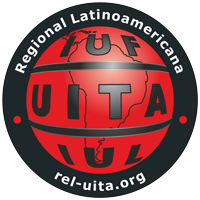While it promotes a “sustainable brand,” it keeps its labor force
working under unsustainable conditions.
Giorgio Trucchi
17 | 6 | 2024

Photo: Gerardo Iglesias
The multinational fruit corporation Fyffes, which grows melons in southern Honduras, along with Sumitomo, through the subsidiaries Suragroh and Melexsa, has just announced its appointment of a new global market director.
The new chief commercial officer will be in charge of overseeing a novel growth strategy that includes promoting the company’s new “sustainable brand”: Trudi’s. The question that immediately comes to mind is: growth and sustainability for whom?
The new consumer brand, that is being touted with the mantra “Good fruit, doing good,” was unveiled last month at the international fresh produce fair Fruit Logistica 2024.
Its stated commitment is to “empowering women, quality education, and improving nutrition in the communities where Fyffes’ own farms and supplier farms operate”.
When the brand was presented, these claims rang jarringly untrue, as they clash sharply with the dismal day-to-day reality suffered by thousands of workers in the Fyffes/Sumitomo melon plantations in Honduras1.
Proof of this stark incongruity is the decision adopted by Fair Trade USA and Ethical Trade Initiative (ETI) to cancel Fyffes’ certification and membership.
These extreme measures were taken due to the multinational corporation’s systematic violation of labor and union rights, the poor occupational safety conditions under which their laborers work, and its total disregard for national laws and international conventions ratified by Honduras2.
This new marketing strategy, which Fyffes uses with the aim of “social washing” its image by appealing to the human sensitivity of consumers, has now become fully operational with the hiring of a top manager.
His task will be to repair the severely questioned and tarnished image of the multinational corporation in strategic markets such as the United States, the United Kingdom, and the European Union.
And while in Europe there is much talk of “sustainable proposals,” of “future,” of “new and exciting options and opportunities,” and of an “ambitious growth strategy,” in the melon plantations of Honduras, not much has changed and workers continue to suffer the same old rights violations.
More than one million euros will be invested on market intelligence, testing, and creative support for Trudi’s. Not one cent, not even the crumbs, will go to the labor force, which will continue to be exploited and belittled, and denied a decent life.
1 https://www.rel-uita.org/honduras/la-nueva-farsa-de-fyffes/
2 https://www.rel-uita.org/?s=fyffes
